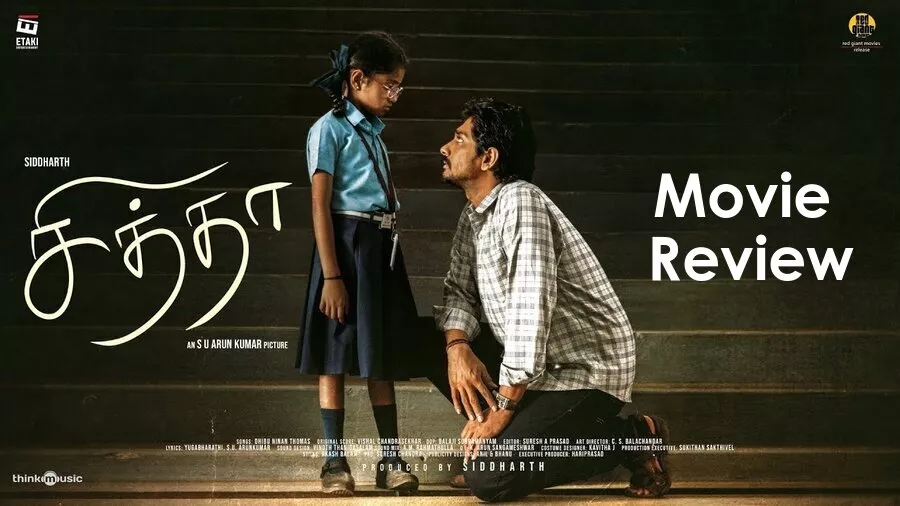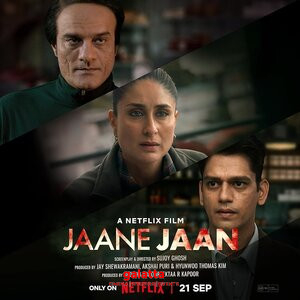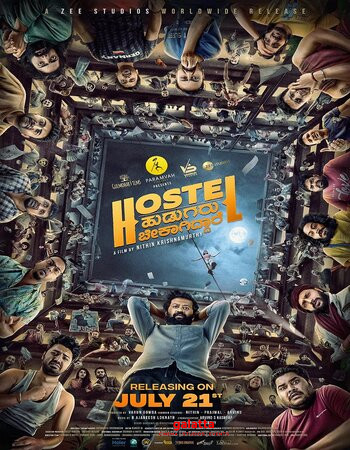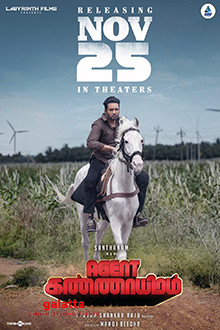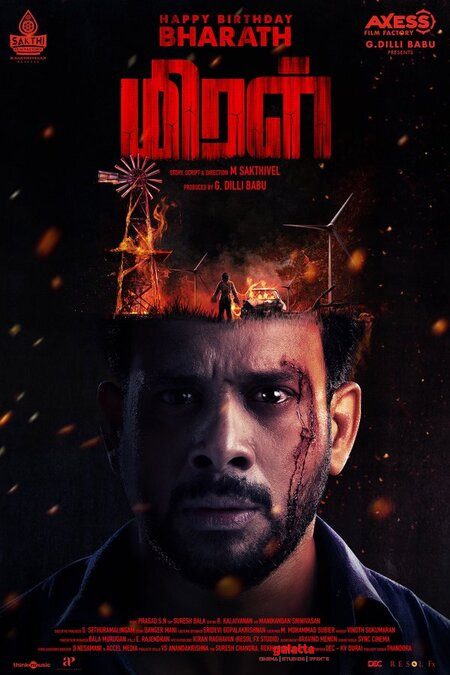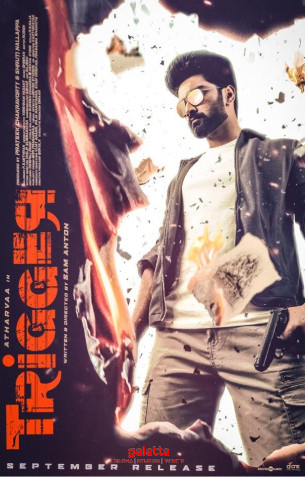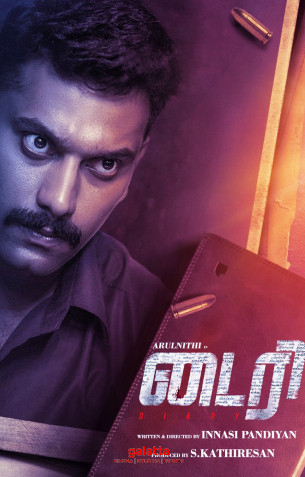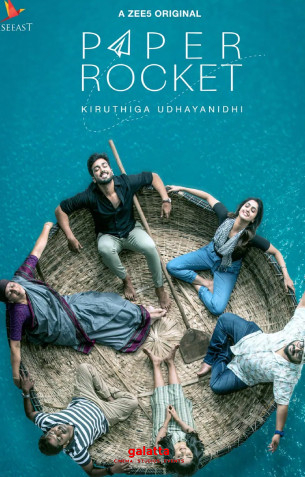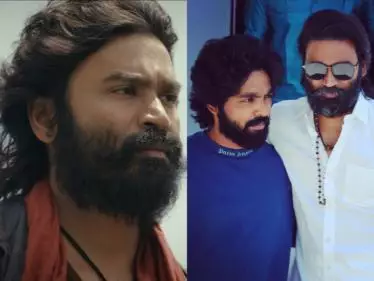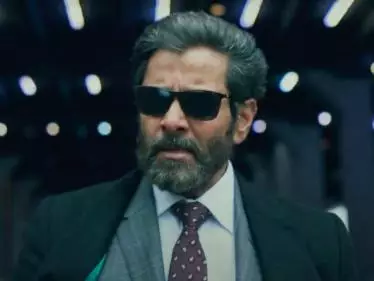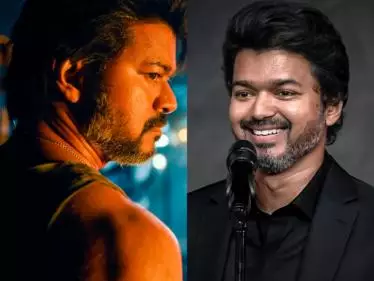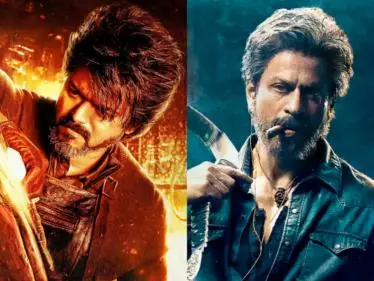Chithha Movie Cast & Crew
There is an early scene in SU Arun Kumar's Chithha where Sakthi (Nimisha Sajayan) has to use a public toilet. The floor is dirty, and filled with water. A woman who has used the stall Sakthi is standing in line for opens the door and leaves without cleaning up. Sakthi calls her back, forcefully, and makes her clean up. This small moment tells us a lot about Sakthi – for instance, she is not one to take things lying down. And this display of strength blooms fully when she runs into Eswaran (Siddharth), her one-time boyfriend who left her without an explanation. Even without the toilet scene, even if Sakthi had shown her anger only after she ran into Eswaran, we would have had an insight into her emotions – but that early scene tells us how, even in the absence of Eswaran, Sakthi is determined not to be a pushover again. We see who she is, and then we see why she became that way.
This is beautiful character-writing, and it's all over this film, which centres on the loving relationship between Eswaran and his dead brother's daughter (Sundari, played by the excellent Sahasra Shree). Eswaran has become the little girl's kinda-sorta foster father, and his relationship with his sister-in-law (Anjali Nair) is equally solid. He is the man of the house, and the situation is so lived-in and so comfortable that there's no awkwardness when they are in close proximity in a cramped kitchen or when he is buying sanitary napkins for her. They give off bestie vibes, and it works wonderfully. There's no weeping, no wailing about the past. These are two people who have accepted a situation and have moved on and are trying to make the best of what life is throwing at them. The chemistry between Siddharth and Anjali Nair is remarkably understated – and that is the flavour of most of the first half.
The A-for-apple background score kills the mood frequently. When Eswaran picks his cute niece up from school, we hear cutesy music, which totally undermines the emotion he was feeling when he met his ex just a little while ago. Each stretch is scored to hype up whatever emotion it represents, and this is an inevitable evil we have come to accept in our cinema. But to compensate, Balaji Subramanyam's cinematography is exquisitely “invisible”. Arun Kumar, in his earlier films, has never displayed this kind of eye for staging, and a lot of the time, we get two or three things being swept into a single, economical, non-showy camera movement. After a mid-shot featuring a female cop (a superb newcomer named Jhansi), the camera follows her as she turns, and we get a wide shot featuring Eeswaran somewhere in the distance. This sort of thing keeps happening over and over, and the camera is alive to both the general environment and the particular proceedings in this story, whether it’s a man fixing a street light or Eswaran crying his heart out in the bathroom. The frames are to die for. Another fantastic bit of staging occurs when the actors move out of the frame, and the camera stays fixated on an empty street – we do not see what these actors are doing beyond the field of the camera.
And what exactly did they do? What happened, exactly? The mystery in the visual ties neatly into the unknowability of what really happened. Eswaran is accused of sexually abusing a little girl, and the screenplay and the editing take these portions to soaring heights. There's not one cliche in how all this information is presented to us. Add to this Siddharth's most sincere, committed, and affecting performance to date, and we are left shattered. This portion brings to fore the very crux of child abuse – that a lot of the time, the perpetrator is someone as close and as "likeable" as Eswaran. The screenplay measures out what we need to know in "real time", just like how the characters who have experienced these events would recall them, instead of dumping us with big stretches of exposition. So even though the love track isn't strictly "necessary" in this story of abuse, it fits smoothly because it was a part of Eswaran before the movie began and it looks like an organic extension of his life now. We are spared the "falling in love" moment, though we do get a fantastic duet: ‘Kangal edho theda’, composed by Dhibu Ninan Thomas.
This lived-in quality, this ability of the film to suggest that its characters have had lives before we meet them, is its greatest strength. Everyone seems so fully-formed, so real. And these are not perfect characters, either. Sundari ends up stealing something, and we get to see the peer pressure a little girl faces at school. Suresh A Prasad is the editor. His sharp rhythms (which could also be an offshoot of the screenplay) keep preventing the scenes from getting into obvious zones. For instance, after Sundari's mother slaps her, we cut to a serene scene of the child sleeping with her "chithha", her chittappa Eswaran. Even a conflict that’s yet to come is built up carefully, with Eswaran humiliating a man by accidentally shoving him into a gutter. And later, when this man turns on Eswaran, you know where the extra animosity is coming from.
The parts that stick out are the ones that let us know in advance what lies ahead: when two cops talk about the rape of a minor a few scenes before a little girl gets into an auto, there is no surprise left. After this point is where I felt the film made a misstep. When you are wrongfully accused of a horrible crime by the very people you love, when your sister-in-law suddenly changes the way she looks at you, when your close friend suspects you, one part inside you surely dies – as we saw in the wonderful Danish film, The Hunt. I felt Chithha needed to dwell on Eswaran’s emotions a little more – but he bounces back into action almost as though this were a minor blip in his life, as the film splits into two very different tracks. (You could say the first half of the film looks inward, while the second half is all outward.)
One track is a procedural about the hunt for a serial child molester. The other track is about Eswaran’s turning into a vigilante, determined to kill the bad guy. Yes, you could argue that this latter aspect of Eswaran has a lot to do with his humiliation after being falsely accused, but the emotions needed to be way deeper – because in his own way, the (wrongfully) accused suffers as much as the abused. I also wished Sakthi’s revelation at the end had not tied so neatly into the film’s overall themes. Nimisha Sajayan, of course, totally sells the moment. She is incapable of giving a dishonest performance. But it’s too much. It’s too convenient. So yes, the second half feels looser and less intense. The villain’s scenes seem caricaturish when compared to the scenes with everyone else. And a sense of predictability sets in when we see Sundari. (Why didn’t they keep the suspense of whether she is still alive?) We seem to be in a regular thriller.
But even in the portions where, say, a clue is found rather randomly, the filmmaking is so good that you easily let go of these misgivings. When Eswaran breaks down after believing Sundari is dead, the camera allows him to retain his dignity by not going close. It stays wide, at a respectable distance. You may question where the film goes, but whatever choices the director makes, he sticks to them with utter conviction. Even the many shots of Eswaran sleeping beside his niece have a devastating payoff in a mortuary. Chithha shows us all aspects of child rape, from the way cases are conducted to the attitudes that need changing. Sakthi tells Eswaran that it’s not about punishing the villain as much as being there for Sundari at a time she really needs him. At this point, the Hero is emasculated, and in a good way. He gets rid of his toxic “heroism”, and realises that it’s better to be a hero to his niece than to be the hero who conquers the villain. To accomplish all this in a “mainstream” format is a truly remarkable achievement.
